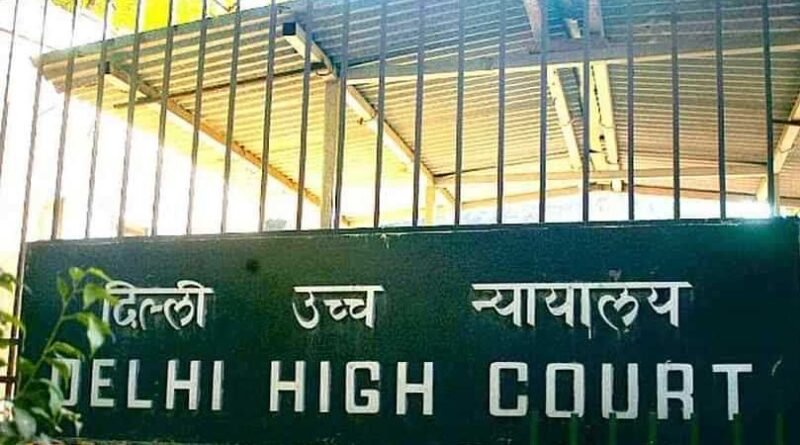Rules notified by Centre to ‘regulate’ digital news media challenged in Delhi HC
New Delhi: The Delhi High Court on Tuesday issued notice a on petition challenging Information Technology (Guidelines For Intermediaries And Digital Media Ethics Code) Rules, 2021, notified by the Centre on February 25, under the Information Technology Act to ‘regulate’ digital news media,
A division bench headed by Chief Justice DN Patel was hearing the petition filed by ‘Foundation for Independent Journalist’, a trust which owns ‘The Wire’, Founder, Editor-in-Chief of ‘The News Minute’ Dhanya Rajendran and Founding Editor of ‘The Wire’ MK Venu.
Sr. Adv. Nitya Ramakrishnan, appearing for the petitioner, argued that despite the Supreme Court striking down S.66A of the Information Technology Act, which had similar provisions for regulating content, the Centre has now brought out these Rules to do indirectly what it cannot do directly, Live Law reported.
The present petition challenges the Information Technology (Intermediary Guidelines and Digital Media Ethics Code) Rules, 2021 (“IT Rules, 2021) as being ultra vires the Information Technology Act, 2000 in as much as they set up a classification of ‘publishers of news and current affairs content’ (“digital news portals”) as part of ‘digital media’, and seek to regulate these news portals under Part III of the Rules by imposing Government oversight and a ‘Code of Ethics’, which stipulates such vague conditions as ‘good taste’, ‘decency’ etc.
The petitioners have challenged the IT Rules, 2021 only in so far as they affect digital news portals, and is not with reference to ‘publishers of online curated content’, i.e., OTT media platforms or any other entities sought to be regulated by the Rules.
The petitioners have submitted that the entire Part III of the Rules that seeks to set up a regulatory mechanism for digital media is ultra vires the parent Act. And if allowed to stand it would be so arbitrary and unwarranted an intrusion on expression, as to render it ultra vires the parent Act on that score alone or throw a doubt upon the validity of the parent Act.
“The parent Act does not recognise digital news media as a separate category of entities and does not seek to subject them or their content to any set of special regulations. The Impugned Part of the Rules, to the extent that it seeks to achieve such special regulation or control of digital media including online news platforms, is manifestly ultra vires the parent Act”, the plea says.
Petitioners submitted that Section 69-A is a limited and specific emergent power as described by the Supreme Court in Shreya Singhal case.
The impugned Rules cannot therefore purport to regulate digital news portals by requiring them to abide by the Code of Ethics. In doing so, the Rules essentially extend the application of two legislations: the Cable Television Networks (Regulation) Act, 1995 and Press Council Act, 1978, to digital news media, to the extent of the Programme Code and the Norms of Journalistic Conduct stipulated under these legislations respectively. (Agency)
